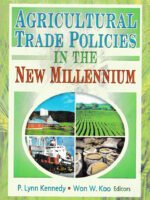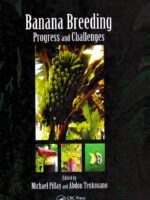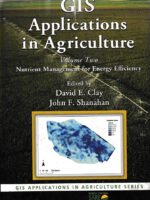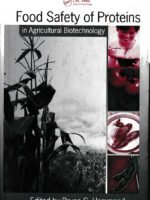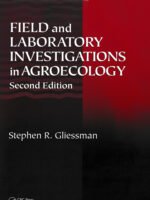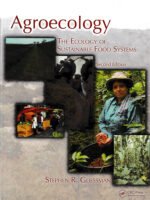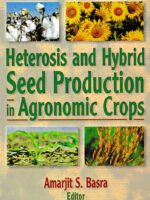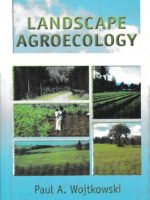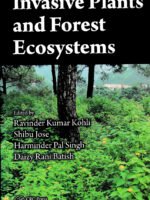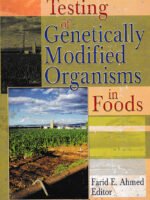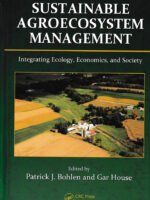-
Geological and Soil Evidence Forensic Applications
₹4,743.00The forensic potential of geological and soil evidence has been recognized for more than a century, but recently these types of evidence are used much more widely as an investigative intelligence tool and as evidence in court. There is, however, still a poor understanding of the potential value and the limitations of geological and soil evidence among the forensic science and wider legal communities.
₹13,950.00 -
Agricultural Trade Policies in the New Millennium
₹2,231.00Face the challenge of change in the global agricultural trade market!This insightful book presents a comprehensive overview of the trade situation facing agriculture in the 21st century. This esteemed collection of the field?s foremost researchers evaluates anticipated changes to the agricultural trade market and the competitiveness of commodities and products resulting from existing and potential international policies. Agricultural Trade Policies in the New Millennium provides an in-depth understanding of multilateral trade negotiations (past, present, and future) and the impact of regionalism on agricultural trade. It also analyzes trade issues specific to individual commodities, such as rice, wheat, and cotton
₹6,563.00 -
Banana Breeding Progress and Challenges
₹7,084.00With the current world population growth of 1.2%, the earth can expect to house 9-10 billion people by 2050. Food production, too, must increase to accommodate these numbers. Easy growing, high calorie, nutritious foods, such as bananas are the top priority as a solution to this imminent problem.
₹16,099.00 -
GIS Applications in Agriculture, Volume Two Nutrient Management for Energy Efficiency
₹7,080.00We are entering a new era in production agronomics. Agricultural scientists the world over call for the development of techniques that simultaneously increase soil carbon storage and reduce agriculture’s energy use. In response, site-specific or precision agriculture has become the focus and direction for the three motivating forces that are changing agriculture today: the expanding capacity of personal computers, the molecular biology revolution, and the recent developments in information technology such as the increasing use of geographical information systems (GIS).
₹16,090.00 -
Traditional Herbal Medicines for Modern Times; Figs The Genus Ficus
₹7,079.00With a history as ancient as any cultivated fruit, many believe the fig has been with us even longer than the pomegranate. The Ficus constitutes one of the largest and hardiest genera of flowering plants featuring as many as 750 species. Although the extraordinary mutualism between figs and their pollinating wasps has received much attention, the phylogeny of both partners is only beginning to be reconstructed. The fig plant does have a long history of traditional use as a medicine and has been a subject of significant modern research.
₹21,450.00 -
GIS Applications in Agriculture, Volume Three: Invasive Species
₹8,633.00While many “alien” plant and animal species are purposefully introduced into new areas as ornamentals, livestock, crops, and even pets, these species can escape into other areas and threaten agricultural and native ecosystems causing economic and environmental harm, or harm to human health. Increasingly, scientists are using Geographic Information Systems (GIS) to track and manage the invaders, mitigate the potential rate of spread and level of impact, and protect the native economy and ecosystem.
₹16,099.00 -
Food Safety of Proteins in Agricultural Biotechnology
₹6,732.00With contributions from internationally recognized experts, Food Safety of Proteins in Agricultural Biotechnology comprehensively addresses how toxicology testing of proteins should be accomplished and how protein safety assessments should be carried out. Beginning with a background on protein biology, the book delineates the fundamental differences among proteins and small molecular weight chemicals that impact their safety assessment. It discusses the life cycle of proteins and explains why some protein toxins exert toxic effects and others do not.
₹20,399.00 -
Agroecology: Field and Laboratory Investigations in Agroecology
₹1,008.00Agroecology is defined as the application of ecological concepts and principles to the design and management of sustainable food systems. Offering step-by-step guidance for structured investigation, Field and Laboratory Investigations in Agroecology, Second Edition reviews ecological concepts and principles in an agricultural setting and provides in-depth, practical experience.
₹2,799.00 -
Agroecology: The Ecology of Sustainable Food Systems
₹1,938.00Providing the theoretical and conceptual framework for this continually evolving field, Agroecology: The Ecology of Sustainable Food Systems, Second Edition explores environmental factors and complexities affecting agricultural crops and animals. Completely revised, updated, and reworked, the second edition contains new data, new readings, new issues and case studies, and new options. It includes two completely new chapters, one on the role of livestock animals in agroecosystems and one on the cultural and community aspects of sustainable food systems.
₹5,699.00 -
Heterosis and Hybrid Seed Production in Agronomic Crops
₹2,719.00Heterosis and Hybrid Seed Production in Agronomic Crops discusses how heterosis or “hybrid vigor” has played a major role in improving crop productivity and quality in order to feed the ever-increasing human population, particularly in developing countries. Plant breeders, agronomists, seed producers, and farmers will discover why the development of hybrids in the world’s major food crops and why the methods of hybrid seed production are critical for achieving this goal. This landmark book deals with heterosis and hybrid seed production of major agronomic crops such as wheat, rice, maize, sorghum, cotton, sunflower, and rapeseed.
₹6,110.00 -
Landscape Agroecology
₹3,655.00This book illuminates the principles behind these triumphs, bringing this local knowledge into the mainstream. Landscape Agroecology will familiarize you with the concepts and terminology needed to understand this exciting new field: complementarity–usually defined in terms of plant-plant growth–expanded to include the rural countryside desirable agroecosystems properties–what an agroecosystem needs in order to overcome landscape stresses such as drought, flooding, insect infestation, etc.
₹10,750.00 -
Invasive Plants and Forest Ecosystems
₹8,370.00As the worldwide human population explodes and trade becomes increasingly globalized, the transboundary movement of plant species from their place of origin to foreign regions is escalating and expected to experience continued growth in the coming decades. Invasive Plants and Forest Ecosystems takes an informed and integrated approach to the current onslaught of invasive species, spotlighting the tremendous challenges they pose for natural resource managers charged with the maintenance of biological diversity and the sustainable production of forest wealth. It addresses the havoc these alien invaders are wrecking on native forest ecosystems and the staggering $300 billion annually in damage and control costs they incur.
₹19,299.00 -
Genetic Resources, Chromosome Engineering, and Crop Improvement Vol-4
₹7,075.00Summarizing landmark research, Volume 4 of this essential seriesfurnishes information on the availability of germplasm resources that breeders can exploit for producing high-yielding oilseed crop varieties.
₹21,440.00 -
Encyclopedia of Animal Science
₹5,415.00Containing case studies that complement material presented in the text, the vast range of this definitive Encyclopedia encompasses animal physiology, animal growth and development, animal behavior, animal reproduction and breeding, alternative approaches to animal maintenance, meat science and muscle biology, farmed animal welfare and bioethics, and food safety.
₹16,410.00 -
Testing of Genetically Modified Organisms in Foods
₹2,135.00Testing of Genetically Modified Organisms in Foods is the first study of the screening methods and tools utilized for determining the presence of genetically modified organisms (GMOs) in food products. Leading experts in science, medicine, and government agencies examine the significant research and clinical developments in bio-engineered agriculture to bring you an accurate risk assessment of GMOs in relation to human consumption, economics, and the environment. This book focuses on three high-profile biotechnological commercial aspects of GMO inclusion in the world market: insect resistance, herbicide tolerance, and virus resistance. It also identifies new GM food crops that are in the laboratory and may soon be on your table.
₹6,100.00 -
Sustainable Agroecosystem Management: Integrating Ecology, Economics, and Society
₹5,306.00Emphasizes Centrality of the Ecosystem PerspectiveSustainable management of agroecosystems in the 21st century faces unprecedented challenges. Protecting the environment while feeding a burgeoning population that could reach nine billion by mid-century, preserving the world’s biodiversity, and sustaining agriculture in an increasingly urban world i
₹16,080.00
- Home
- Categories
- Architecture
- Agriculture and Farming
- Business & Management
- Engineering
- Fashion & Textiles
- General and References
- Humanities & Social Science
- Islam
- Library Science
- Literature & Literary Studies
- Mathematics & Statistics
- Media, Information & Communication Industries
- Medicine
- New Arrivals
- On Sale
- Science & Technology
- Sports
- Top Selling
- Travel & Tourism
- Annual Reviews
- Exclusive
- Blog
- Others

